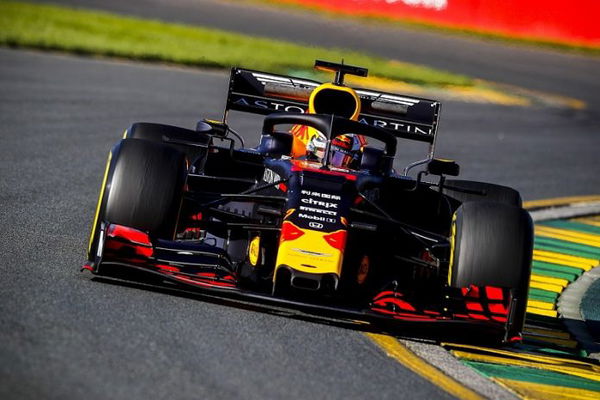
via Imago
Red Bull

via Imago
Red Bull
Red Bull have brought in a lot of focus for the 2019 season especially in the financial department. This was the most amount of money pumped into the team in any season since its debut in 2005. The cash flow was actually confirmed by recently released Red Bull accounts.
Normally, Formula One cars are developed a year before they are rolled out and ready for action. To that end, the latest accounts for Red Bull Technology revealed that the company’s costs surged by 8.9% to a record £304.2 million in 2018.
In spite of their spending reaching an all-time high, a 5th title continues to elude the team. Last year Red Bull were third in the standings and stood no chance of winning the 2019 drivers’ or constructors’ championship.
ADVERTISEMENT
Article continues below this ad
In Suzuka last weekend, Red Bull had a mixed day in the office, with Alex Albon one place behind Lewis Hamilton. On the other side of the garage, his teammate Max Verstappen was reduced to spectator after a collision with Ferrari’s Charles Leclerc on the opening lap.
In 2018, Salary payments rose 1.8% to £84.4 million as the team added 16 more personnel. In fact, team boss Christian Horner earns an impressive paycheck of £3.4 million, according to the accounts.
Research and development costs increased to £118.1 million and this wasn’t just driven by racing. The accounts further states that “the principal activity of the group is the design, development and manufacture of Formula One racing cars. However the company also “applies high-end engineering know-how outside of Formula One.”
ADVERTISEMENT
Article continues below this ad
This included a collaboration with Aston Martin on a 225 miles per hour hypercar and developing a range of yachts with Sunseeker.

via Imago
Red Bull
After paying its £304.2 million of costs, Red Bull Technology was left with a pre-tax profit of around £10 million. This was mostly thanks to prize money, sponsors like TAG Heuer and payments from Red Bull itself. The energy drinks giant paid the team £104.2 million for this exposure last year, an increase of 10.6% on 2017.
ADVERTISEMENT
Article continues below this ad
However, the teams’ race contracts all expire at the end of next year and the FIA has proposed introducing radical new regulations after that. Major aerodynamic changes are under discussion as well as the re-introduction of mid-race refuelling which hasn’t been allowed since 2009.
The accounts point out that “changes in regulations by the FIA can have a material impact on a team’s competitive capabilities with significant commercial consequences.” Ominously, they add that “the company is mindful that under the new commercial and regulatory framework, post-2020, Formula One needs to remain attractive for Red Bull’s continued support.”
ADVERTISEMENT
ADVERTISEMENT
ADVERTISEMENT
ADVERTISEMENT

